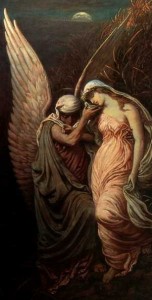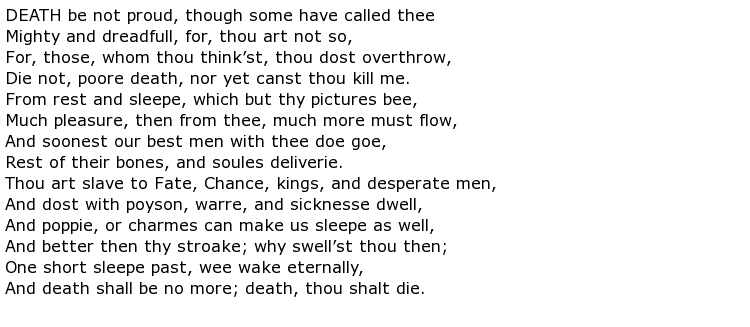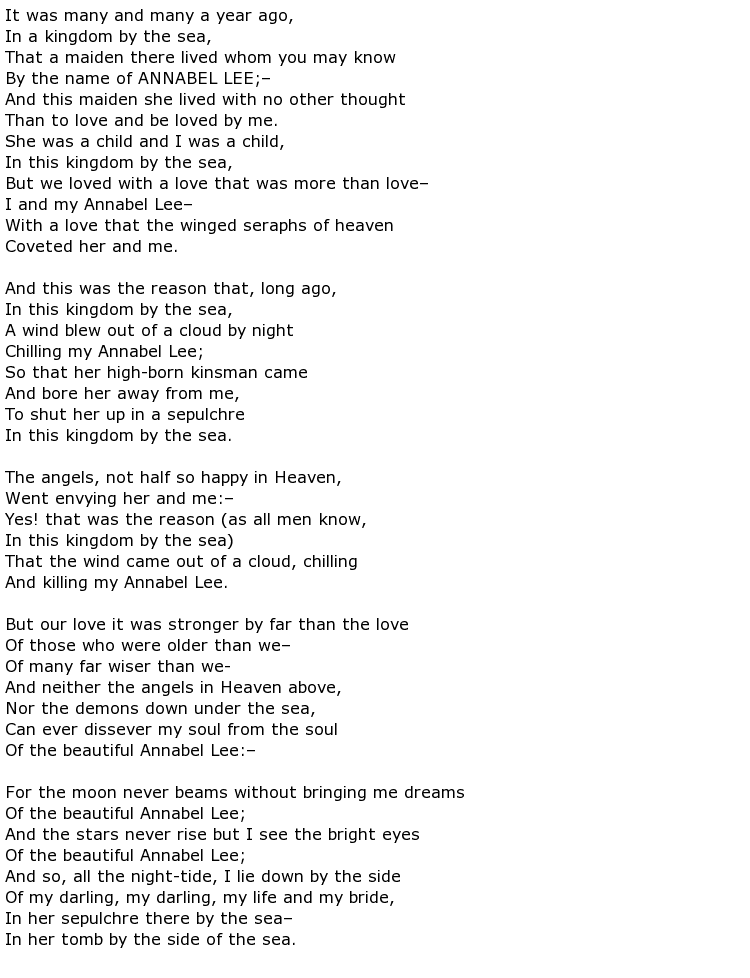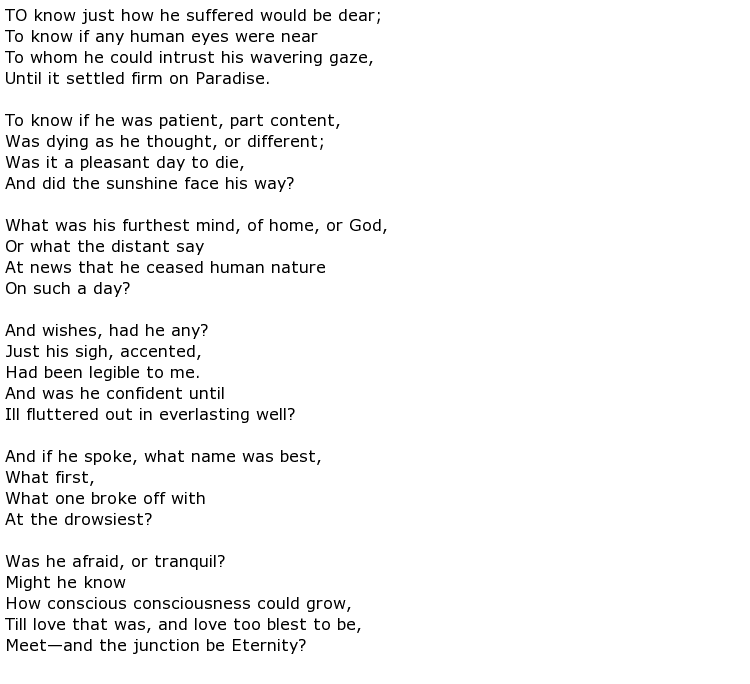 The specter of death looms large over the living, and as such, most cultures throughout the world have a certain level of preoccupation with death. Unsurprising, then, that many of the most famous poems throughout time have dealt with themes of death and mortality.
The specter of death looms large over the living, and as such, most cultures throughout the world have a certain level of preoccupation with death. Unsurprising, then, that many of the most famous poems throughout time have dealt with themes of death and mortality.
Without a doubt, one of the most famous death poems is “Death Be Not Proud” by John Donne (1573-1631). While many of Donne’s poems featured themes relating to death and the afterlife, few are as famous as “Death Be Not Proud:”

The difference, then, between “Death Be Not Proud” and many of Donne’s other poems is that it not only treats death more reverentially – Donne is known for his irreverence in a time when most poetry was quite serious and even dour – than some of his other poems, but is also hopeful that there is an afterlife, and that the thought of afterlife alone can vanquish death.
One of America’s most famous poets, Edgar Allan Poe (1809-1849), was as preoccupied as death as Donne, and, like Donne, often subverted the idea of death by writing about the supernatural, about spirits, ghosts, and even demons who have returned from the dead to torment the living, or by writing horror stories and poems that gave death an even more wraith-like presence.
Despite his tendency toward the macabre, Poe was capable of more traditional verse, even on the subject of death. One of his best-known poems is the death poem “Annabel Lee:”

Poe foretold the Victorian obsession with death and the afterlife by several years in “Annabel Lee,” and for that reason the popularity of this poem only grew in the decades after his death.
Another American Victorian poet, Emily Dickinson (1830-1886), also wrote often about themes of death and mortality, but with a more realistic tone than Poe. During Dickinson’s lifetime, the most indelible experience would have been that of the American Civil War, which influenced artists throughout the country, one of whom was undoubtedly Dickinson. One of her closest friends was a Federal soldier during the war, a fact that brought the war even closer to home for Dickinson.
Dickinson seemed to echo the thoughts of many who lost loved ones during the war in “To know just how he suffered:”

Death is a theme that most poets turn to eventually. Many of the world’s most famous poems are poems that reflect the author’s beliefs or hopes about death and the afterlife, beliefs and hopes that are often universal.


You must register to comment. Log in or Register.